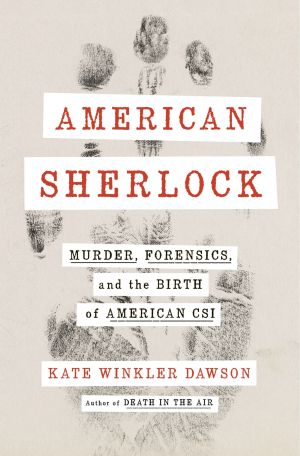American Sherlock, Murder, Forensics, and the Birth of American CSI

- Authors
- Dawson, Kate Winkler
- Publisher
- G.P. Putnam's Sons
- Tags
- history , science , biography
- Date
- 2020-02-11T00:00:00+00:00
- Size
- 14.66 MB
- Lang
- en
The story of the birth of criminal investigation in the twentieth century.
Berkeley, California, 1933. In a lab filled with curiosities--beakers, microscopes, Bunsen burners, and hundreds upon hundreds of books--sat an investigator who would go on to crack at least two thousand cases in his forty-year career. Known as the "American Sherlock Holmes," Edward Oscar Heinrich was one of America's greatest--and first--forensic scientists, with an uncanny knack for finding clues, establishing evidence, and deducing answers with a skill that seemed almost supernatural.
Heinrich was one of the nation's first expert witnesses, working in a time when the turmoil of Prohibition led to sensationalized crime reporting and only a small, systematic study of evidence. However with his brilliance, and commanding presence in both the courtroom and at crime scenes, Heinrich spearheaded the invention of a myriad of new forensic tools that police still use today, including blood spatter analysis, ballistics, lie-detector tests, and the use of fingerprints as courtroom evidence. His work, though not without its serious--some would say fatal--flaws, changed the course of American criminal investigation.
Based on years of research and thousands of never-before-published primary source materials, American Sherlock captures the life of the man who pioneered the science our legal system now relies upon--as well as the limits of those techniques and the very human experts who wield them.